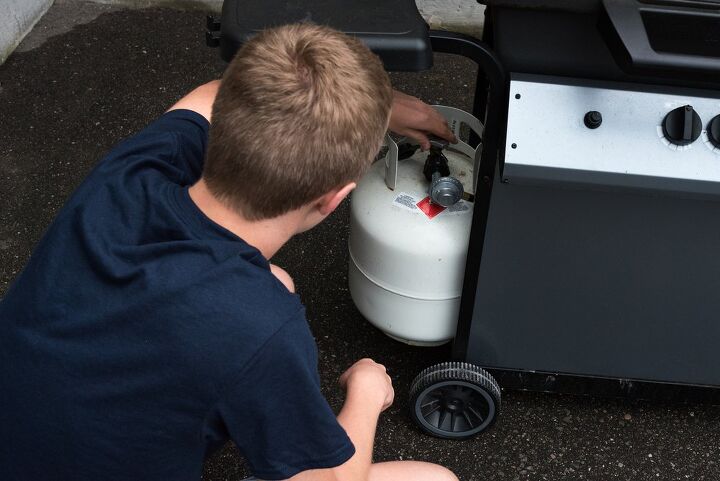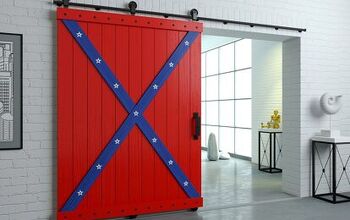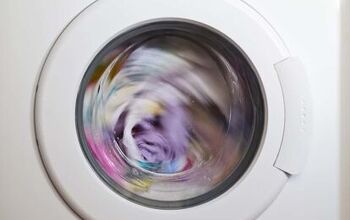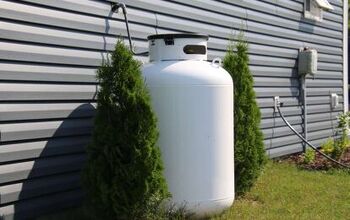Why Does Propane Have An Odor When Tank Is Low?

Propane is a beneficial thing to have around your house. It can help in cases of emergency, or we use it for everyday stuff like grilling. Today, propane service companies make it possible to have propane in your house at any given time.
Sometimes propane can run low, and this can sometimes produce an odor. With that in mind, it is vital to make sure that you know what to do. So, why the propane odor when the tank is low?
The propane odor may occur when the tank is low due to a gas leak or the pilot light is about to go out. Propane is odorless, so the odor would be the additives when something is not right. Propane and propane tanks are designed this way as a warning to the user to seek professional attention immediately. Without the odor, it could be deadly.
Do You Need a Heating and Cooling Contractor?
Get free, zero-commitment quotes from pro contractors near you.

What If The Propane Smells Like Gas?
Propane is designed to be environmentally and economically friendly. It is odorless, and the product is still intended to resemble a gas-like odor when something is going wrong. If you smell gas, the chances are that something is running incorrectly, and you need to remedy the situation quickly.
Propane can be dangerous if it is not appropriately treated and taken care of in a quick fashion. The product is designed to give off a very unpleasant smell if it is running low or a line is disconnected. While this is an unpleasant and assigned warning, it is normal for this to happen.
What is the Source of the Smell?
Propane itself does not have a smell; it is odorless. If you smell something coming from your propane tank, it is most likely the additive included within the solution. This additive is included in the solution to provide a warning system for the user.
The odor only happens when something is wrong, and so it should be given special attention. Six of the most common smells or signs that occur when something is wrong with a propane tank are as follows.
- The smell of sulfur
- A hissing sound near a gas line
- A white cloud or dust cloud near a gas line
- Bubbles in the water
- A damaged or corroded gas pipe
- Dead houseplants
The Sign of a Gas Leak
If the smell as mentioned above occurs, there is a chance that you’ve had a gas leak. Propane is very flammable and dangerous despite its usefulness. It is crucial that you take care of this as soon as possible.
Before calling an emergency service like 911 or any professionals, make sure that you are well away from the smell. This is for your safety and will help in the long run while dealing with this issue.
The Signs of a Low Tank
The smell could also possibly be from the fact that your propane tank is low. It is important not to let it get too low as this can cause a dangerous explosion. Propane tanks are and can be very dangerous if they’re used in the wrong way or not appropriately treated.
Check the propane tank regularly to prevent the tank from getting too low and causing an explosion in your home. You should turn off the propane tank and contact a professional to set up a time to switch out the tank.
The Pilot Light Has Gone Out
Another possible source of the smell could be that your pilot light has gone out. While pilot lights can go out for many different reasons, it is necessary to call a professional to relight the pilot light. This is the safest way to address this issue and ensure that your propane tank is functioning perfectly.
Lighting a pilot light can be very dangerous because it can cause an explosion due to the built-up gas in the tank. This is why you should contact a professional to take care of this problem.
What To Do When Your Tank Is Low
A propane tank is considered to be running low if it has less than 20% on the gauge. That is the time that you should begin to consider what next steps you want to take. Contacting the propane company early and scheduling delivery is the best option.
Earlier, it was said that a low propane tank alerts you before there can be an explosion. While an explosion is extreme, all that needs to happen is for the tank to be too low. Spare gas vapors can ignite within the chamber.
If you’ve noticed your tank is low, do not panic unless you have less than 10% left on your gauge. You do have a few days. Call a professional and schedule times you have the tank looked at refilled or replaced.
When you notice the tank is low, reduce the usage of the propane tank to extend its lifespan. You can use other resources to burn in the time that it takes you to get a new or refilled propane tank.
Try to avoid needing emergency delivery or out-of-hours delivery. It can cost more than it usually would if you were to be placed on a schedule. Sometimes the delivery truck may get backed up with orders, and it will take longer for them to get to you.
How To Avoid Getting Too Low On Propane
To avoid your propane tank getting too low, you should set up a regular routine for your propane tank. You should select a gauge that can remind you when your propane tank is getting too low. Set time aside to check your propane tank regularly.
Many people today have smartphones or computers. Setting an alert or alarm when the next service should arrive is a wise choice. Even those who are old school can still go on a calendar and mark the date off for the next round of service.
If you use your propane tank often, set up a delivery system with your propane tank provider. This way, a propane tank is delivered regularly, and you are never at risk of running low or running out. It would be best if you always planned on a delivery when there is around 20% left in the tank.
This is the safest method and should help you avoid the dangers that can come along with owning a propane tank.
All About Propane Safety
Propane tanks are heavily regulated. These regulations are designed to keep you and everyone around your propane tank safe. Below are some of the necessary precautions you must take in order to ensure the proper usage of your propane tank.
- If you rent a tank or buy one, propane companies are strict on propane tank maintenance requirements. This will usually be a part of your contract. An agreement will be made at the time of installation.
- Maintenance falls on the homeowner. If any assistance is needed, the company that delivers or installs the propane tanks can help. It is important to know they will charge a service fee. Heavy fines ranging from $500 to $10,000 are implemented if any of the rules are broken. It depends on the severity and the risk of dangers.
- Per these regulations, your propane tank has to be a certain distance from windows, vents, or any potential source of ignition. This is common sense under safety rules. Should an explosion or leak occur, the distance can save lives.
- These safety guidelines are designed to be easy to follow and reduce any possible threats linked to propane. Before the propane company leaves the site, they will ensure everything is understood and answer all the homeowner’s questions.
- As an added step of safety, you might consider installing a carbon monoxide detector in different areas of your space. These devices have saved countless lives. Carbon Monoxide poisoning can happen at any moment.
When it is noticed, it may sometimes be too late. Having a carbon monoxide detector will pick up the trace long before your sense of smell will.
Do You Need a Heating and Cooling Contractor?
Get free, zero-commitment quotes from pro contractors near you.

Related Questions
How many days can a propane tank last at 20%?
The tank’s size determines the factor. If your tank is smaller, it would be better not to turn it on. However, if your tank is larger, then you will probably still have enough propane left in the tank until the professional arrives. It is better to remain with a mind of caution. You should wait until the professional gets there. This will ensure that you do not run out. The last thing you want is to run into issues with your pilot light, unwanted gas smells, or an explosion.
How much does propane cost?
The price fluctuates with the cost of fuel. On average, the cost per gallon is around $2.38 per gallon. This puts a 500-gallon tank between $1,000 and $1,190 to fill.
How long does propane last?
It depends on what appliances are being used. Heating systems use the most propane, while stoves use the least.

We are a team of passionate homeowners, home improvement pros, and DIY enthusiasts who enjoy sharing home improvement, housekeeping, decorating, and more with other homeowners! Whether you're looking for a step-by-step guide on fixing an appliance or the cost of installing a fence, we've here to help.
More by Upgraded Home Team












![The 10 Best Table Saws - [2022 Reviews & Buyer's Guide]](https://cdn-fastly.upgradedhome.com/media/2023/07/31/9070645/the-10-best-table-saws-2022-reviews-buyer-s-guide.jpg?size=350x220)

![How Much Weight Can a 4×4 Support Horizontally? [It Depends!]](https://cdn-fastly.upgradedhome.com/media/2023/07/31/9070333/how-much-weight-can-a-44-support-horizontally-it-depends.jpg?size=350x220)












